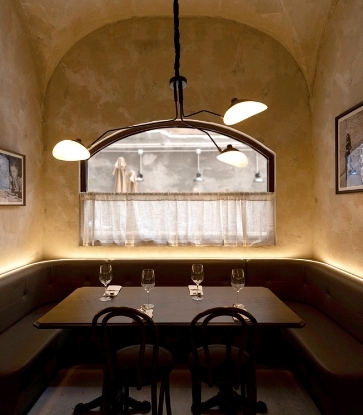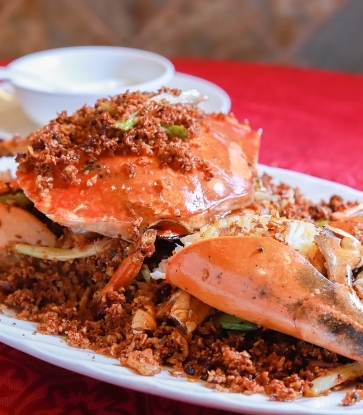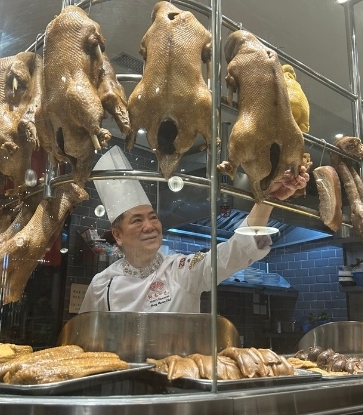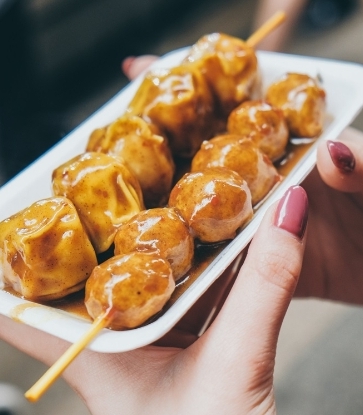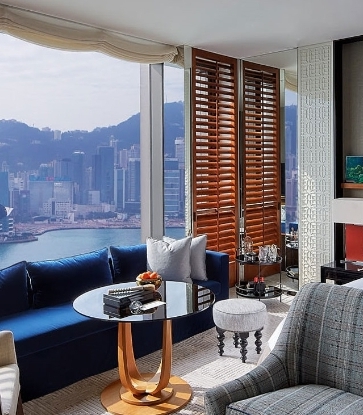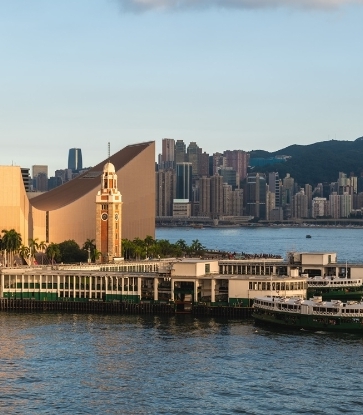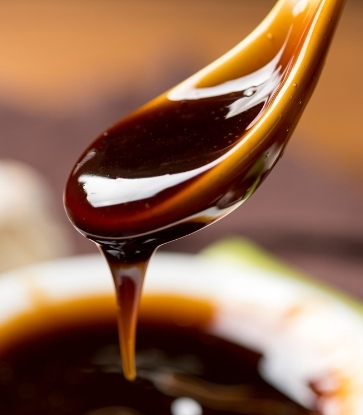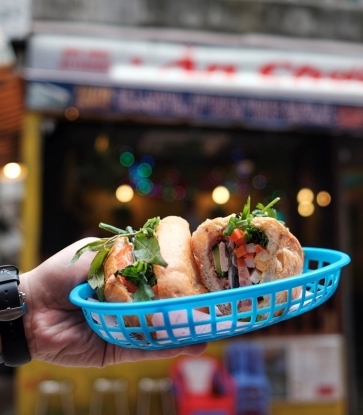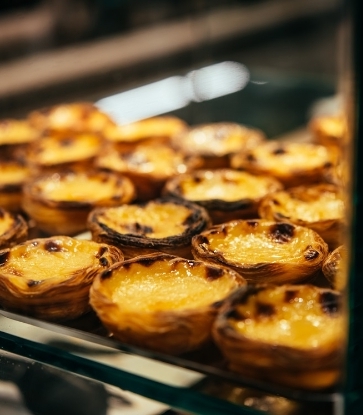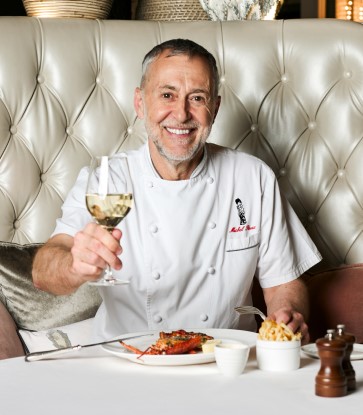At just 30 years old, Frankie Wong has already spent a decade working in the kitchen. His passion for cooking runs deep, shaped by parents who whisked him away on frequent gourmet adventures and a childhood filled with shows like Hell’s Kitchen and Iron Chef. So, when he was named the recipient of MICHELIN Guide Hong Kong & Macau's Young Chef Award 2025, presented by AIA Hong Kong and Macau, it’s no surprise he was overcome by emotion.
Presented by AIA Hong Kong and Macau, the MICHELIN Guide Young Chef Award aims to recognize young chefs from MICHELIN restaurants who demonstrate outstanding talent and potential. AIA aspires to encouraging young people to unleash their potential and pursue their dreams, hoping to foster more outstanding talent in the culinary industry through supporting the Young Chef Award.
RELATED: The Full List of the MICHELIN Guide Hong Kong & Macau 2025

“The recognition by The MICHELIN Guide means a lot to me and it is a boost to the whole team at Ankôma where everyone is younger than 30 years old. This award belongs to all of them,” Wong says. Despite coming from a younger generation, he is keen to prove that they are capable of creating dishes on par with those of international elites.
“To me, age isn’t the be-all and end-all,” he says. “Certain restaurants and chefs might look at people like me and think we are too young, not deserving of a chance, but I’ve been lucky to have met many good mentors and friends along the way.”
RELATED: Top 5 Trends Shaping Hong Kong & Macau’s Gastronomic Scene, According to MICHELIN Inspectors

A Harmonizing Voice
Wong assumes a unique vantage point in conveying his culinary vision, blending French technique, Japanese produce and a Hong Kong palate. For example, he makes kinmedai the star of a Cantonese stir-fry, elevated by clams and dried icefish. Elsewhere, the Indian-French vadouvan sauce complicates the flavor of baked pork chop rice, a favorite of Hongkongers. The addition of sherry wine vinegar to the snow crab tartlet honors the crab-vinegar pairing that is customary in the city.
The charm of French-Japanese cooking is further showcased in the grilled Racan pigeon, with the technique of yakitori accentuating the fowl’s natural sweetness. The fusion of cultures is also evident in the remaining components of the dish – skewered innards, pigeon leg meatballs and crispy pan-fried pigeon breast, finished with a rich sauce made with a combination of French pigeon jus and Japanese yakitori sauce.
RELATED: 5 Reasons Why You Should Visit Hong Kong in 2025
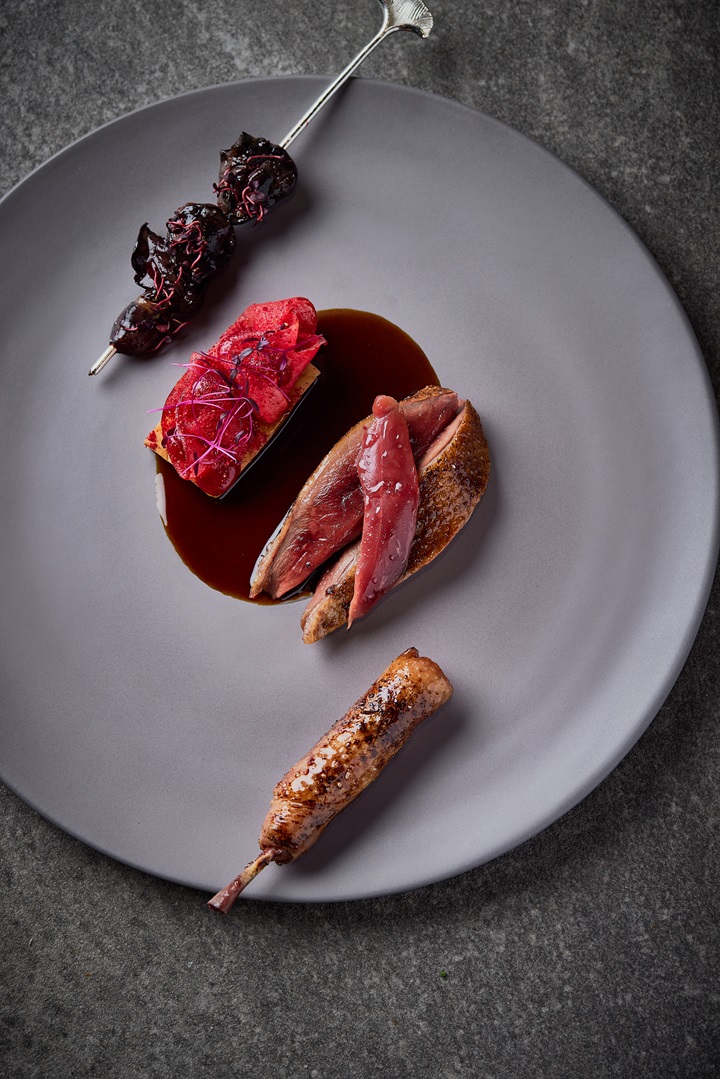
The young chef also shines a light on ingredients cultivated on his native soil. His grocery list includes homegrown edible flowers, tomatoes and Three Yellow Chicken, which he thinks is just as flavorful as French poultry. In the future, he would like to conceive a dish centered around udon made by a local noodle producer.(right photo: Roasted Racan Pigeon | Grilled Viscera and Thighs | Mushroom | Plum | Raspberry | Yakitori Pigeon Jus ©Ankôma)

Valuable Lessons
Born and raised in Hong Kong, Wong’s career began in 2016 at Gateway Hotel, part of the Marco Polo Hotels group. He subsequently transferred to MICHELIN-star ZEST by Konishi in 2020 and two-star Écriture in the same year (both now defunct). The latter, in particular, was a formative experience, that taught him to meld French and Japanese elements, helping develop his signature culinary style.Écriture’s executive chef Maxime Gilbert showed him the essentials of mastering various techniques from cooking meat at different temperatures to highlight its flavor and tenderness, to more specific methods like crafting clam sauces and dressings, which Wong incorporates into the current spring menu.
“Maxime taught by example. He showed me how to better myself every day, and how to manage a team of cooks,” Wong says. “ I haven’t had the chance to work overseas, but I was fortunate enough that the chefs I followed were very selfless. They unlocked the potential in me.”
Breaking Geographical Boundaries
After a six-month delay caused by the COVID pandemic, Ankôma eventually opened in 2022, in what Wong admits was a daunting start. Being in the driving seat for the first time meant his attention was split among cooking, cleaning and myriad miscellaneous tasks.The steep learning curve, however, accelerated Wong’s growth. Dishes hot and cold, savory and sweet were all prepared by just three people, including himself. Every day was like heading into a warzone, but soon enough, he was battle-ready.
“No matter how hectic the preparation phase is, when the customers arrive, you have to stay calm to serve them,” he says.
Further Reading: Behind the Scenes: MICHELIN Guide Ceremony Hong Kong & Macau 2025 — Through the Eyes of the Chefs

As the MICHELIN Guide Ceremony Hong Kong & Macau 2025 concluded, Wong received some encouraging words from Chef Vicky Lau who leads the two-MICHELIN-star restaurant Tate. She told him to be bold and focus on establishing a cuisine that evokes a sharp personal identity rather than submitting to public opinion.
“That gave me a lot of inspiration,” Wong says.” I thought of our signature roast chicken. It was our most popular dish since opening, but it also prevented us from new breakthroughs.
“I hope the award will make everyone put more faith in me, allowing me to work with more creativity and flavor combinations.”
Hero image: ©MICHELIN
The article is written by Gloria Chung and translated by Vincent Leung. Read the original article here.
RELATED: Stories from All of the Young Chef Awardees of Hong Kong & Macau








